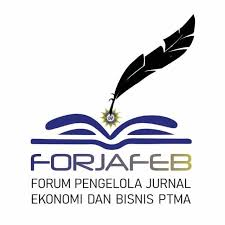TINJAUAN GENDER DALAM PERENCANAAN ANGGARAN DAERAH: STUDI FENOMENOLOGI PADA PENYUSUNAN APBD KABUPATEN MAJENE
DOI:
https://doi.org/10.32534/jpk.v11i3.6269Kata Kunci:
Gender Budgeting, Gender Mainstreaming, APBD, Gender EqualityAbstrak
Penelitian ini mengeksplorasi implementasi anggaran berbasis gender dalam perencanaan dan penganggaran di Kabupaten Majene, Sulawesi Barat. Isu utama yang dihadapi adalah rendahnya partisipasi perempuan dalam pengambilan keputusan anggaran, yang berdampak pada ketidakadilan dalam alokasi anggaran yang tidak responsif terhadap kebutuhan gender. Penelitian ini bertujuan untuk memahami lebih dalam bagaimana integrasi perspektif gender dilakukan dalam penyusunan Anggaran Pendapatan dan Belanja Daerah (APBD). Metode penelitian yang digunakan adalah deskriptif kualitatif dan kuantitatif dengan pendekatan studi kasus, termasuk wawancara mendalam dan observasi partisipatif. Hasil penelitian menunjukkan bahwa meskipun terdapat kebijakan untuk mendorong pengarusutamaan gender, implementasinya masih menghadapi berbagai tantangan, termasuk resistensi institusional dan kurangnya kapasitas serta pemahaman mengenai pentingnya perspektif gender. Kebaruan penelitian ini terletak pada analisis mendalam tentang hambatan dan peluang dalam penerapan anggaran berbasis gender di tingkat daerah, serta rekomendasi untuk meningkatkan efektivitas kebijakan ini guna mencapai kesetaraan gender yang lebih inklusif dan berkelanjutan.
Unduhan
Referensi
Amal, J., & No, B. (2023). Portrait of Gender Responsive Budget in Addressing Poverty in Sidenreng Rappang District. Journal of Economic, Public, and Accounting (JEPA), 6(1), 64–80. retrieved from https://doi.org/
Ayissa Tazkia, A. T., Listyaningsih, & Juliannes Cadith. (2022). Implementasi Pengarusutamaan Gender dalam Pembangunan di Kabupaten Pandeglang. Jurnal Administrasi Publik, 18(1), 25–44. https://doi.org/10.52316/jap.v18i1.93
Dello Strologo, A., D’Andrassi, E., & Ventimiglia, F. (2023). The Prioritization of the SDGs: Analysis of European Policies in Favor of Gender Equality BT - When the Crisis Becomes an Opportunity: The Role of Women in the Post-Covid Organization (P. Paoloni & R. Lombardi (eds.); pp. 243–254). Springer International Publishing. https://doi.org/10.1007/978-3-031-21932-0_16
Demaidi, M. N., & Al-Sahili, K. (2021). Integrating SDGs in Higher Education—Case of Climate Change Awareness and Gender Equality in a Developing Country According to RMEI-TARGET Strategy. In Sustainability (Vol. 13, Issue 6). https://doi.org/10.3390/su13063101
Galizzi, G., Bassani, G., & Cattaneo, C. (2023). How to integrate gender budgeting in the public agenda: insights from an Italian local government. Public Money & Management, 43(6), 551–558. https://doi.org/10.1080/09540962.2023.2201041
Harirah. MS, Z., Marta, A., & Isril, I. (2023). Pergulatan Advokasi Kebijakan Pengarusutamaan Gender di Kota Pekanbaru. Journal of Social and Policy Issues, 3(2023), 135–139. https://doi.org/10.58835/jspi.v3i3.200
Irfani, F. (2018). Konstektualisasi Gender Islam dan Budaya. Buletin Al-Turas, 16(1), 200–216. https://doi.org/10.15408/bat.v16i1.4289
Kemechian, T., Sigahi, T. F. A. C., Martins, V. W. B., Rampasso, I. S., de Moraes, G. H. S. M., Serafim, M. P., Leal Filho, W., & Anholon, R. (2023). Towards the SDGs for gender equality and decent work: investigating major challenges faced by Brazilian women in STEM careers with international experience. Discover Sustainability, 4(1). https://doi.org/10.1007/s43621-023-00125-x
Koissy-Kpein, S. A. (2020). Achieving Gender Equality in Education in Sub-Saharan Africa: Progress and Challenges in Moving from the MDGs to the SDGs BT - Women and Sustainable Human Development: Empowering Women in Africa (M. Konte & N. Tirivayi (eds.); pp. 143–164). Springer International Publishing. https://doi.org/10.1007/978-3-030-14935-2_9
Kurniawan, A. W., & Fridiyanti, Y. N. (2023). ANALISIS ANGGARAN DAERAH RESPONSIF GENDER (Studi Realisasi Anggaran Pendapatan dan Belanja Daerah ( APBD ) Kabupaten Pati Tahun 2018). 9(2). https://doi.org/10.25157/moderat.v9i2.3110
Liufeto, A. M., & Angi, Y. F. (2019). Anggaran Responsif Gender Pada Apbd Provinsi Nusa Tenggara Timur Tahun 2017-2019. Jurnal Akuntansi : Transparansi Dan Akuntabilitas, 7(2), 99–110. https://doi.org/10.35508/jak.v7i2.1699
Made Wiasti, N. (2017). Mencermati Permasalahan Gender dan Pengarusutamaan Gender (PUG). Journal Of Anthropology, 1(1), 29. https://doi.org/https://doi.org/10.24843/SP.2017.v1.i01.p04
Mardiasmo. (2018). AKUNTANSI SEKTOR PUBLIK (Virgo Natipulu (ed.); 1st ed.). ANDI.
Martiany, D. (2011). Implementasi Pengarusutamaan Gender (PUG) Sebagai Strategi Pencapaian Kesetaraan Gender (Studi di Provinsi Sumatera Utara dan Jawa Tengah). Aspiraso, 2(2), 121–136. http://www.ippf.org/en/Resources/Articles/
Mohamad Khusaini, Khusnul Ashar, G. M. (2021). Manajemen Belanja Daerah. UB Press.
Nunuy Nur Afiah, Sri Mulyani, A. A. (2020). Akuntansi Pemerintah Daerah Berbasis Akrual pada Entitas Akuntansi (Konsep dan Aplikasi) (1st ed.). KENCANA.
Nurhaeni, I. D. A. (2017). Pedoman Teknis Penyusunan Gender Analysis Pathway (GAP) dan Gender Budget Statement (GBS). Gender Analysis Pathway (GAP) Dan Gender Budget Statement (GBS), 1–112.
Nurkholis, M. K. (2019). Penganggaran Sektor Publik. UB Press.
Nursini. (2010). Perencanaan Pembangunan dan Penganggaran Daerah (Teori dan Aplikasi).
Oktaria, D. (2015). Analisis Anggaran Responsif Fender di Provinsi Sumatera Selatan. Akuntabilitas:, 9(1). https://doi.org/10.29259/ja.v9i1.8795
PA, E. J. B., Marsanda, M., Hutapea, N., Andini, P., Tobing, S., & Siregar, T. M. (2023). Realisasi Anggaran Pendapatan dan Belanja Daerah (APBD) Provinsi Sumatera Utara pada Tahun 2020. Indo-MathEdu Intellectuals Journal, 4(3), 2924–2935. https://doi.org/10.54373/imeij.v4i3.472
PERBUP. (2022). PERATURAN BUPATI MAJENE NOMOR 10 TAHUN 2022 TENTANG RENCANA AKSI DAERAH PENGARUSUTAMAAN GENDER KABUPATEN MAJENE TAHUN ANGGARAN 2022-2026.
PERDA. (2021). PERATURAN DAERAH KABUPATEN MAJENE NOMOR 6 TAHUN 2021 TENTANG PENGARUSUTAMAAN GENDER.
PERMEN P3A RI. (2014). PERATURAN MENTERI NEGARA PEMBERDAYAAN PEREMPUAN DAN PERLINDUNGAN ANAK REPUBLIK INDONESIA NOMOR 4 TAHUN 2014. Retrieved from file:///C:/Users/USER/Downloads/Permenpppa042014.pdf
Rahayu, W. K. (2017). Analisis Pengarusutamaan Gender dalam Kebijakan Publik (studi kasus di BP3AKB Provinsi Jawa Tengah). (Jurnal Analisis Kebijakan & Pelayanan Publik), 2(1), 93–108. Retrieved from file:///C:/Users/Acer/Downloads/502-972-1-SM.pdf
Saraswati, N. (2013). Analisis Gender dan Politik Perspektif Post-Feminisme.
Selvira Pebby, U. P. (2021). Gender Discourses Analysis Representasi Bias Gender Dan Pengaruhnya Pada Buku Ajar Sejarah Kebudayaan Islam Di Madrasah Ibtidai’yah. Equalita Jurnal Studi Gender dan Anak, 3(2), 155-168. DOI.pdf. Equalita, 3(2), 155–168. https://doi.org/10.24235
SUJARWENI, V. W. (2021). AKUNTANSI SEKTOR PUBLIK (Teori, Konsep, Aplikasi) (Mona (ed.)). Pustaka Baru Press.
Taneo, A. J., & Angi, Y. F. (2022). Penerapan Anggaran Responsif Gender Pada Dinas Pemberdayaan Perempuan Dan Perlindungan Anak Dan Dinas Kesehatan Provinsi Nusa Tenggara Timur Tahun Anggaran 2018-2020. JPAI: Jurnal Perempuan Dan Anak Indonesia, 3(2), 26. https://doi.org/10.35801/jpai.3.2.2022.39821
Vitalaya Sjafri hubeis, A. (2010). Pemberdayaan Perempuan dari Masa ke Masa (2nd ed.). IPB Press.
Wahyuningsih, W. (2018). Millenium Develompent Goals (Mdgs) Dan Sustainable Development Goals (Sdgs) Dalam Kesejahteraan Sosial. Bisma, 11(3), 390. https://doi.org/10.19184/bisma.v11i3.6479
Wiasti, N. M. (2017). Mencermati Permasalahan Gender dan Pengarusutamaan Gender (PUG). Journal Of Anthropology, 1(1), 29–42. https://doi.org/https://doi.org/10.24843/SP.2017.v1.i01.p04.
Zabaniotou, A. (2020). Towards gender equality in Mediterranean Engineering Schools through networking, collaborative learning, synergies and commitment to SDGs-The RMEI approach. Global Transitions, 2, 4–15. https://doi.org/10.1016/j.glt.2019.12.001
Unduhan
Diterbitkan
Terbitan
Bagian
Lisensi
Hak Cipta (c) 2024 Muhammad Ihsan Ansari, Indra Basir

Artikel ini berlisensi Creative Commons Attribution 4.0 International License.




















